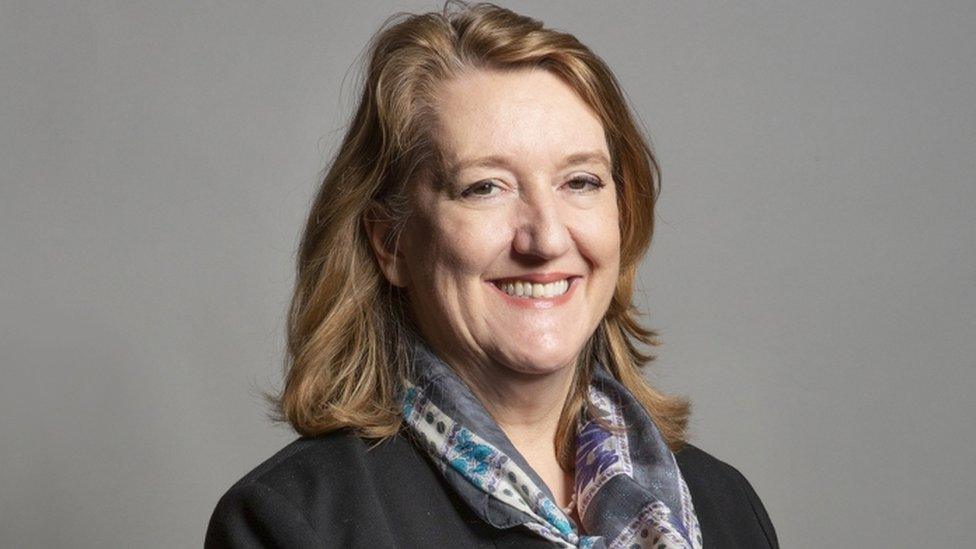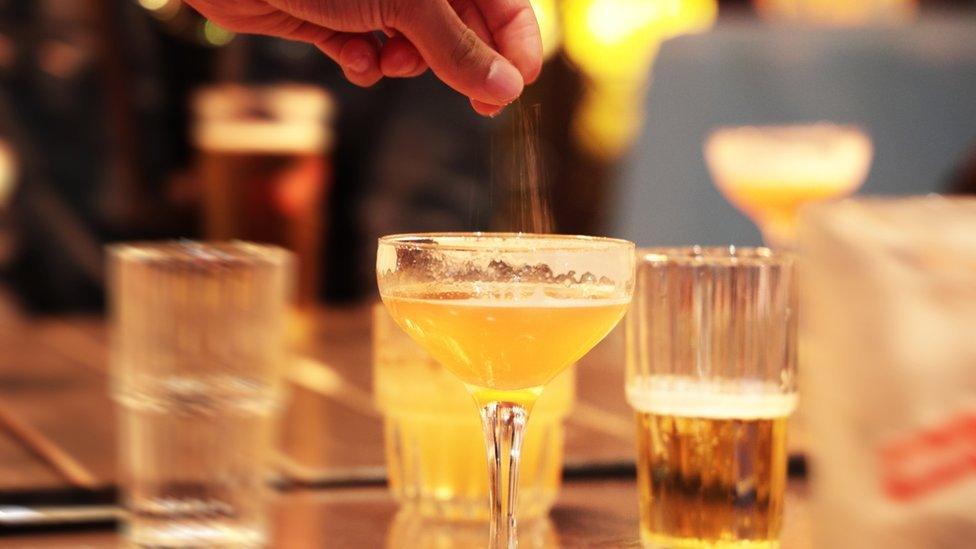Spiking: Low conviction rate is shocking, say victims
- Published

Poppy Read-Pitt, 20, said her drink was spiked in Nottingham in 2020
A student who suspects she was a victim of spiking has said the low conviction rate is shocking but not surprising.
Figures obtained by the BBC suggest that while there were nearly 5,000 reports of spiking-related incidents to forces in 2021/22, there were just 40 convictions in four years.
Poppy Read-Pitt, 20, said her drink was spiked in Nottingham in 2020 and that little had changed since then.
The government has said it will not create a specific offence for spiking.

Abi Crook said spiking should be recognised as a specific offence
Ms Read-Pitt, who is in the third year of an English literature degree at the University of Nottingham, said: "The very least we can do is make it a specific crime.
"That shows the authorities they can begin to look at it as something that is real, legitimate and serious.
"It feels like it happens just as much now as it did last year and as it did when I was a fresher.
"Nothing, absolutely nothing has changed."

Poppy (left) says she has no recollection of much of the night when she suspects the spiking took place
Ms Read-Pitt suspects her drink was spiked during a night out in Nottingham.
She said: "I don't remember anything past 21:00 GMT, which was about 40 minutes into us being at the venue.
"There's just nothing, completely black, and then I wake up at 09:00 the next morning in my clothes, in my bed and I have absolutely no memory of how I got there, what happened or just anything at all really.
"I was completely immobile. I wasn't just drunk and stumbling. I don't know how to describe it… completely lifeless."
Figures for England and Wales from the National Police Chiefs Council suggest that between September 2021 and 2022 there were 4,924 reports of spiking-related incidents in one year, external.
However, the Ministry of Justice said that according to its latest figures for both countries, which date from November 2017 to November 2021, there were just 40 convictions, external.

Dawn Dines, from Stamp Out Spiking, backed the students
Ms Read-Pitt was supported in her calls by another student at the university.
Abi Crook, 20, a third year geography student, said she had also been spiked on a night out in the city.
She said: "By not having its own crime or specifically fitting into a category, it just makes it so much easier for the police and other authorities to discount it."
The students were backed by the campaign group Stamp Out Spiking.
Founder Dawn Dines said: "Police forces are making efforts to report incidents more fully but whilst spiking is not a separate prosecutable offence, it makes it impossible to prove the true scale, and impact of this crime."
The government has said a new law is unnecessary.
In January, Home Office minister Sarah Dines said there were already several offences which covered spiking incidents and the government had not found "any gap in the law".

Home Office minister Sarah Dines said a new law was unnecessary
The Home Affairs committee had previously argued a specific offence would have several benefits, including increased reporting of incidents, facilitating police work by improving data and "sending a clear message to perpetrators that this is a serious crime".
Labour MP Diana Johnson, committee chair, said: "Reporting is low, and prosecution rates are very rare indeed."
The Home Office said: "We have concluded that there are already several offences which cover incidents of spiking, and we have not found any gap in the law that a new spiking offence would fill.
"We have therefore concluded that a new offence is not required and will not be bringing in new legislation."

Follow BBC East Midlands on Facebook, external, on Twitter, external, or on Instagram, external. Send your story ideas to eastmidsnews@bbc.co.uk, external.
- Published11 January 2023
